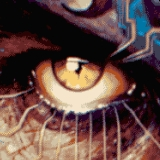Lawrence Faucette, the second living person to receive a genetically modified pig heart in a transplant, has died six weeks after the experimental procedure. The University of Maryland Medical Center, where the experimental procedure had been performed, said the heart began to show signs of rejection in recent days.
“Mr. Faucette’s last wish was for us to make the most of what we have learned from our experience, so others may be guaranteed a chance for a new heart when a human organ is unavailable. He then told the team of doctors and nurses who gathered around him that he loved us. We will miss him tremendously,” Dr. Bartley Griffith, clinical director of the Cardiac Xenotransplantation Program at the University of Maryland School of Medicine, said in a statement. Griffith had performed the experimental surgery.
Noble dude
Old men planting trees.
Honestly. He’s helping pave the way so that people who have heart issues could potentially have replacements one day. Not just old dudes, but kids too.
Even if pig hearts never pan out, he got 6 more weeks with his loved ones.
That’s a nice metaphor.
friendly reminder that you do not need to be old to plant trees. If you have a choice to take part in a scientific study, please do. Its usually quite easy.
personally for me it was a double blind study about tapering from steroids. so a month of tapering (or not, idk, it was blind), and then a few phone calls over 6 months.
Humanity thanks him for his sacrifice
This comment is so good I read it aloud to others. You win English today.
It’s a paraphrase. “Society grows great when old men plant trees whose shade they know they will never sit in.” There are many versions across history. But no matter its source, it’s a lovely sentiment.
deleted by creator
My grandpa had a pig heart valve, and that thing lasted way longer than its warranty suggested. Yeah, he was told up front it would last ten years, but he got more out of it.
That’s good to hear. The return policy for those things tend to be absolute garbage.
One could say he’s past the point of no return.
The final threshold.
A lot of people think that regular human transplants are problem free but the vast majority of them are rejected by the receiver. If it’s for a life saving procedure it can only extend the life span by so much…
My dad had a double lung transplant several months ago…we were told by his transplant team that, with transplants, rejection is a “when”, not an “if”. However, if caught early enough, the docs can do an incredible amount to combat rejection.
Complete layperson here but it kind of astounds me that we haven’t cracked the code for this friend-or-foe identification. One would think there is some identifier or expression that is evaluated by the immune system and if we could match that we’d be golden but clearly not that simple.
We can’t even cure autoimmune diseases yet. Why the fuck has my immune system decided my own tissues are the enemy?! Such a dick move.
Fucking confused white blood cells need to figure out their shit
I started reading the book Immune by the team that runs the Kurzgesagt (In a Nutshell) YouTube channel. The book is written for laypeople like us to understand, but I didn’t get very far before going “holy shit this is ridiculously complicated”. Honestly, just the fact that scientists understand any of this astounds me.
Years of dedication, my friend.
Surprisingly, things become simpler when there are more eyes looking at them. The more esoteric something is, the harder it will be to grasp because there are fewer resources to help you.
Taking immunology right now, it’s incredibly complicated. Immune cells aren’t like any other cells in our bodies, they’re absolutely bonkers.
Biology is not as simple as 1s and 0s. We want it too be. But it’s just more complex.
Our bodies are just winging it. It’s both beautiful and goodness and all kinds of other things but it’s a bit philosophical at times.
I had ITP. Autoimmune something which means they don’t know what caused it but my body stopped acknowledging that parts of my blood cell, not the entire one just a piece of it, we’re not me. Of course not me gets flushed out.
But the fancy words for part of a blood cell is called a platelet if you don’t have any platelets you don’t clot. As you can probably pick up not being able to clot is a big problem. I was in danger of bleeding out because my body decided to take out all my platelets.
Seems like an easy problem. If a whole blood cell is me because the DNA matches and all kinds of other things, obviously one cell of me is one cell of me. But if you take one cell of me and you break it up into pieces is it still one cell of me? By definition is not it is 50% of me…
So one cell of me is obviously me and one cell of you is obviously you but what happens when we get into percents at what percent does my cell stop becoming me?
Your body has the miraculous ability to identify ANYTHING that isn’t itself: viruses, fungi, bacteria, even lots of nearly-self things like cancer.
It’s likely not a solvable problem.
Oh it is… we just need to get over the idiots that don’t like stem cell research. If we could clone and grow our own organs it would be a huge step.
It’s likely not a solvable problem.
I doubt that.
Fair enough.
These are very complicated processes that are difficult to interpret with such a (relatively) small number of people looking at it.
Honestly, this might sound weird, but if my body ever got to that point, I’d rather just go die in a war.
Better to go out with a bang than a wimper, imo.
Lmao yeah you say that now
I’m just curious if you have data behind this?
My understanding is that rejection related deaths in solid organ transplant recipients is only ~18% and that it is actually trending downward.
deleted by creator
That’s not actually how it works. Rejection of a transplanted organ means the body is developing antibodies against the organ.
Successful dosing and continued use of immunosuppressants inhibit the body from “rejecting” the transplanted organ(s).
I suspect you’re operating off a commonly held idea that transplanted organs have a “shelf life” but that’s not really true.
It’s important to keep in mind that transplanting organs is still comparatively new medical science (only about 70 years old) and that transplants are often for older patients or patients with other underlying conditions that caused the original organ failure to begin with.
It’s tough, these folks are often already in multiorgan failure because those organs were trying to hold up for their failing heart. So now you’ve got shot kidneys and lungs but a brand new heart to try and hold up those failing organs. Then you end up right back into heart failure.
I don’t want people to see this as a failure.
Experiments are how we gain new information to try better the next time.
Ultimately these experiments are reserved for people who are ineligible for traditional heart transplants. This person was granted an extra six weeks with their family which is easy to overlook but the family likely cherished every moment.
I guess we’ll have to wait a bit to find out what killed him. The first person died due to several things like his condition and the heart had a pig virus.
The pathogen issue is a real hurdle to overcome. I am wondering if we will get viable 3D printed hearts before we get viable transplants from other species.
3D-printed or stem-cell grown so they’re just new, hot-swappable copies of our own organs, minus defects thanks to CRISPR 🤯
Griffith had performed the experimental surgery
Fitting name
?
This is what OP is talking about: Griffin
What about: https://berserk.fandom.com/wiki/Griffith
I don’t know anything about that lore, but it may be a better match.










